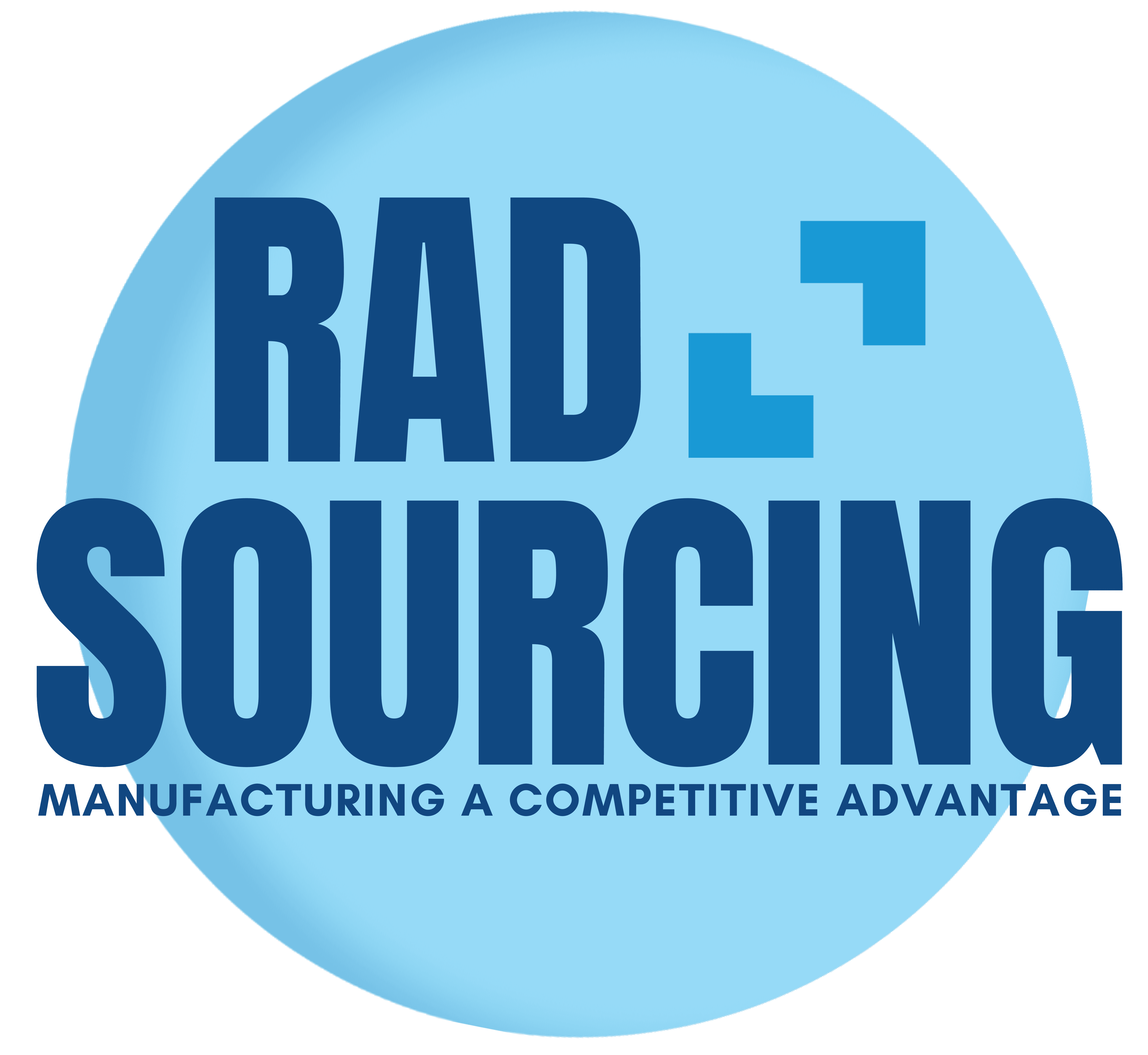Hello, and welcome back to Rad Sourcing. Today we will be discussing shipping terms in apparel manufacturing.
When it comes to shipping goods internationally, the terms you choose—FOB, CIF, or DDP—can significantly impact your apparel brand’s bottom line, responsibilities, and peace of mind. At Rad Sourcing, we help brands understand these shipping terms so they can make informed decisions and avoid costly mistakes. Whether you’re just starting or scaling up, knowing what these shipping terms mean (and how they affect you) is key to managing costs and expectations throughout production.
What Do These Shipping Terms Actually Mean?

These are Incoterms, shorthand for “International Commercial Terms,” and they define who pays for what—and when ownership and risk of the goods transfer during shipment.
1. FOB (Free on Board)
FOB is best for brands who want more control over shipping.
With FOB, the supplier handles everything until the goods are loaded on the vessel at the port of origin (like Shanghai or Karachi). From that point on, the buyer takes over—handling freight, insurance, customs clearance, and final delivery.
What’s covered by the factory:
- Inland transportation to the port
- Export documentation and clearance
- Loading the goods onto the ship
What’s covered by you:
- Ocean freight
- Import duties and taxes
- Customs clearance and delivery to your warehouse
We often recommend FOB for brands that have their own freight forwarder or want to consolidate shipments. It provides more visibility and flexibility—especially at higher volumes.
2. CIF (Cost, Insurance, and Freight)
CIF is best for those who want some of the work taken off their plate but still want to manage delivery.
Here, the supplier covers everything up to the destination port. That includes insurance and sea freight. But once the cargo arrives, the buyer is responsible for duties, customs clearance, and final delivery.
What’s covered by the factory:
- Everything in FOB +
- Marine insurance
- Sea freight to your country’s port
What’s covered by you:
- Unloading at the destination
- Import duties and customs
- Final mile delivery
CIF is often used when shipping to large, international ports with known customs procedures and where the buyer already has local logistics set up.
3. DDP (Delivered Duty Paid)
DDP is best for brands who want a completely hands-off shipping experience.
Under DDP, your supplier (or sourcing partner like Rad) handles everything, including duties and taxes. The goods are delivered straight to your door, and all the legwork is done for you.
What’s covered by the factory:
- Everything in CIF +
- Import customs clearance
- Duties and taxes
- Final delivery to your address
What’s covered by you:
- Just receive the goods and pay the invoice
We often use DDP for newer brands or high-touch projects where the client doesn’t want to navigate freight logistics. It’s also useful for small parcel shipments or DTC brands using 3PLs that prefer goods delivered prepaid.
What Shipping Term Should You Use?
There’s no one-size-fits-all answer—it depends on your team’s capabilities, shipping volume, and how much control you want. For example:
- A new brand with no freight partner? DDP might be safest.
- A seasoned brand consolidating freight across multiple vendors? FOB provides flexibility.
- Want protection during ocean transit but still want to manage the last leg? CIF might be your best bet.
We’ve handled all three shipping methods for brands ranging from startups to household names. We help our clients choose the best option for each shipment based on the project’s goals, budget, and logistics setup. And because we have teams on the ground in China, Pakistan, and other production hubs, we manage freight proactively to avoid delays and hidden costs.
Need help deciding which shipping terms are right for your next order? Contact Rad Sourcing and we’ll walk you through it.
